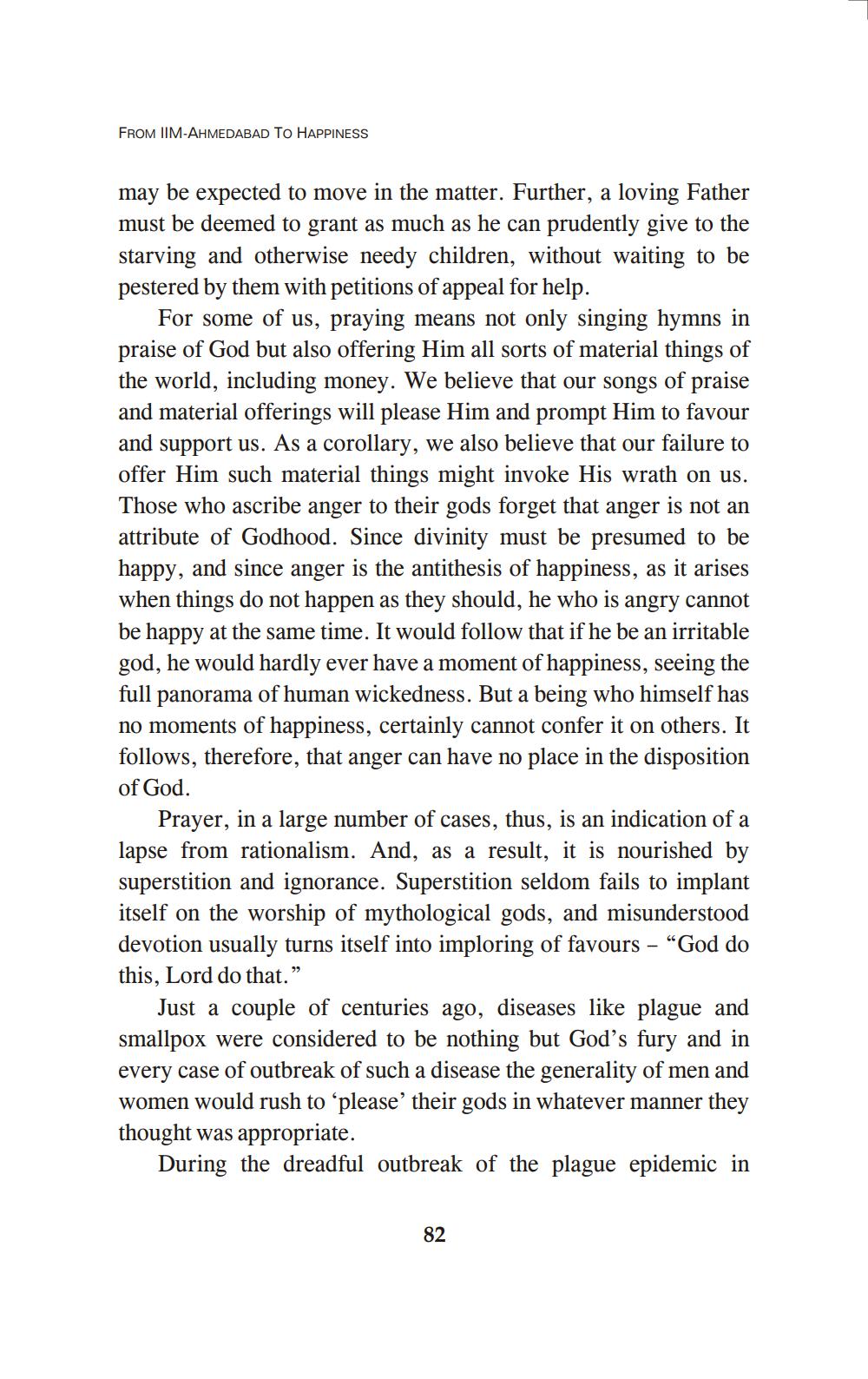________________
FROM IIM-AHMEDABAD TO HAPPINESS
may be expected to move in the matter. Further, a loving Father must be deemed to grant as much as he can prudently give to the starving and otherwise needy children, without waiting to be pestered by them with petitions of appeal for help.
For some of us, praying means not only singing hymns in praise of God but also offering Him all sorts of material things of the world, including money. We believe that our songs of praise and material offerings will please Him and prompt Him to favour and support us. As a corollary, we also believe that our failure to offer Him such material things might invoke His wrath on us. Those who ascribe anger to their gods forget that anger is not an attribute of Godhood. Since divinity must be presumed to be happy, and since anger is the antithesis of happiness, as it aris when things do not happen as they should, he who is angry cannot be happy at the same time. It would follow that if he be an irritable god, he would hardly ever have a moment of happiness, seeing the full panorama of human wickedness. But a being who himself has no moments of happiness, certainly cannot confer it on others. It follows, therefore, that anger can have no place in the disposition of God.
Prayer, in a large number of cases, thus, is an indication of a lapse from rationalism. And, as a result, it is nourished by superstition and ignorance. Superstition seldom fails to implant itself on the worship of mythological gods, and misunderstood devotion usually turns itself into imploring of favours – “God do this, Lord do that."
Just a couple of centuries ago, diseases like plague and smallpox were considered to be nothing but God's fury and in every case of outbreak of such a disease the generality of men and women would rush to‘please’ their gods in whatever manner they thought was appropriate.
During the dreadful outbreak of the plague epidemic in
82




